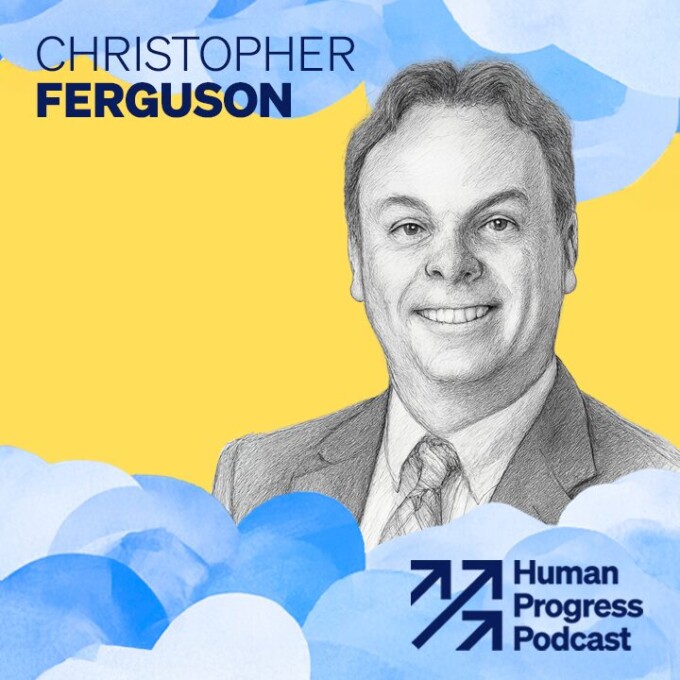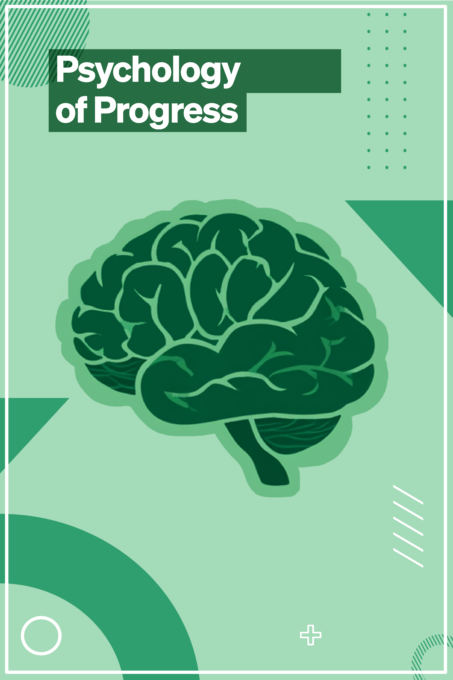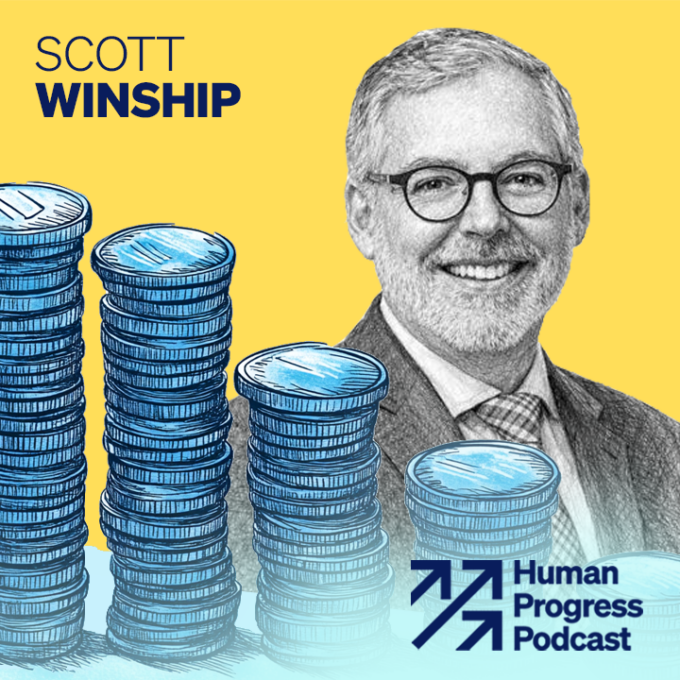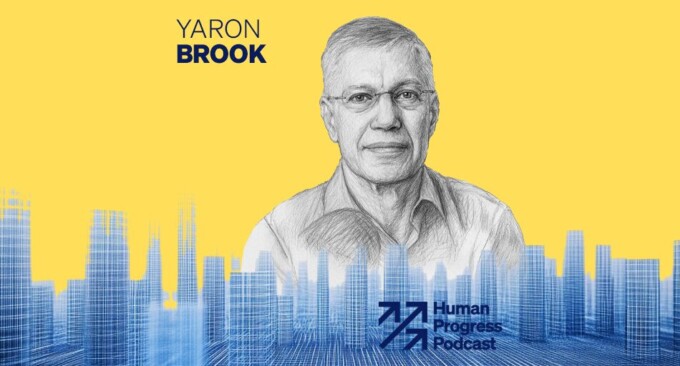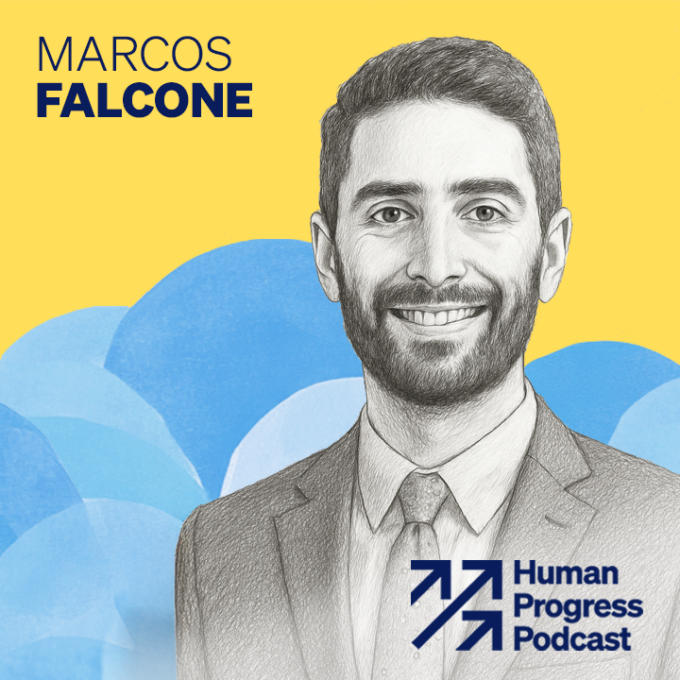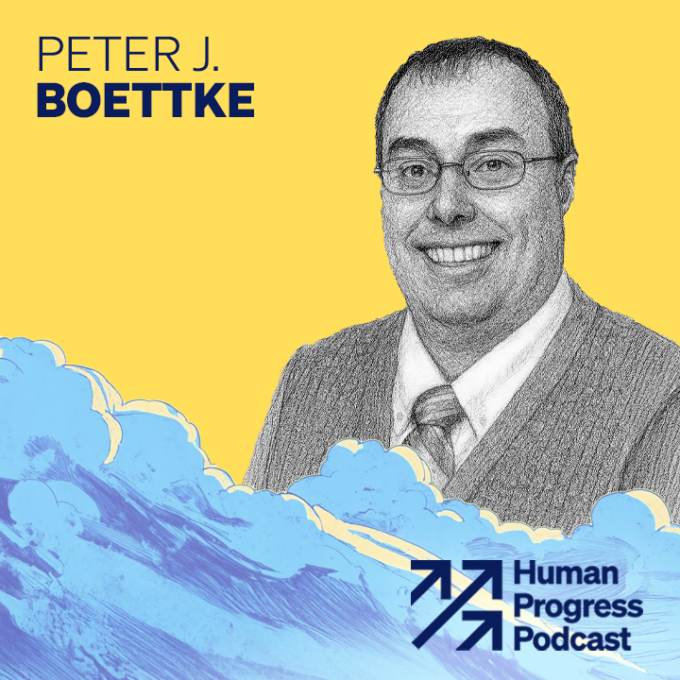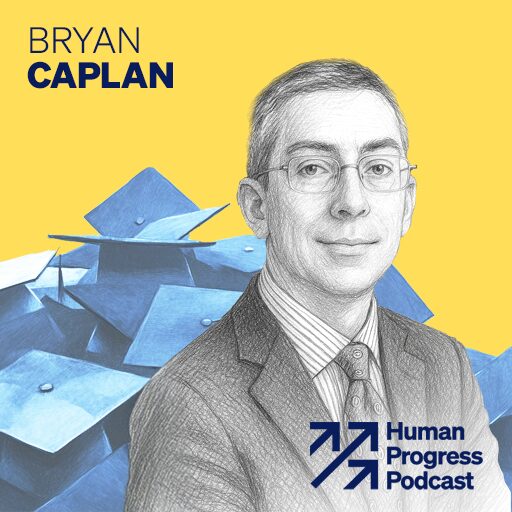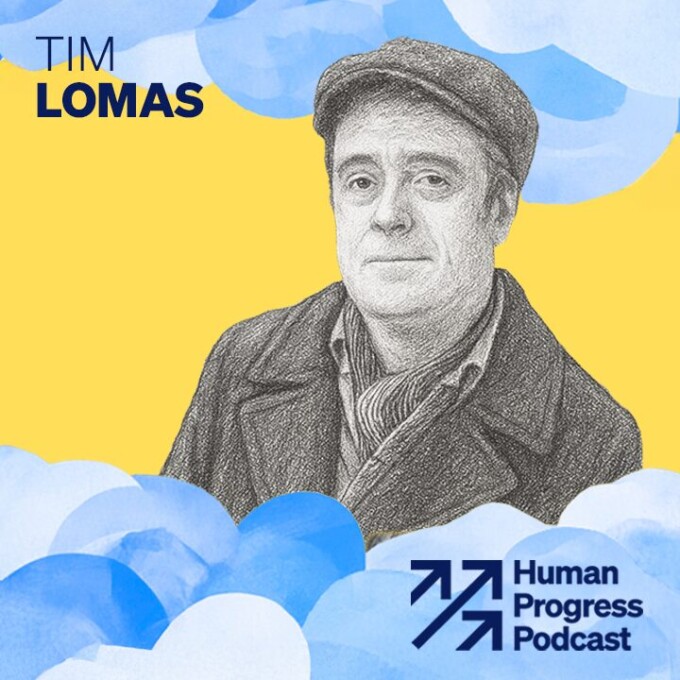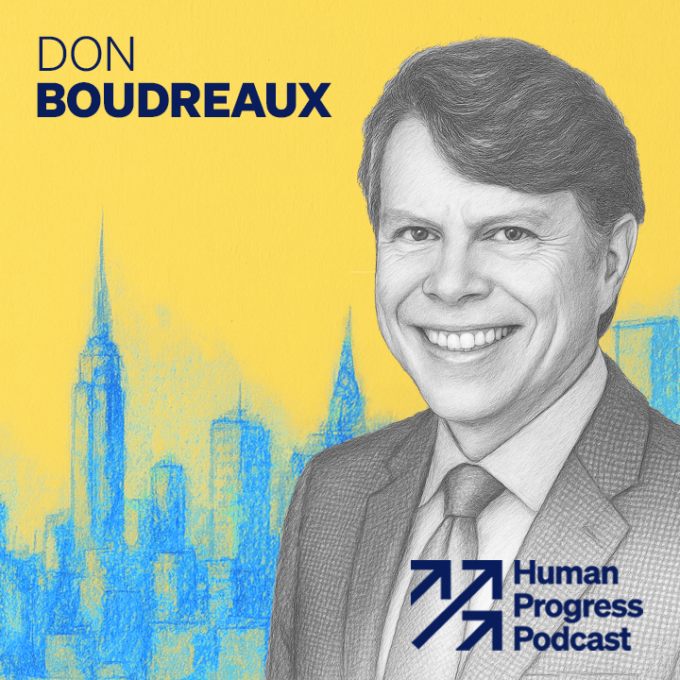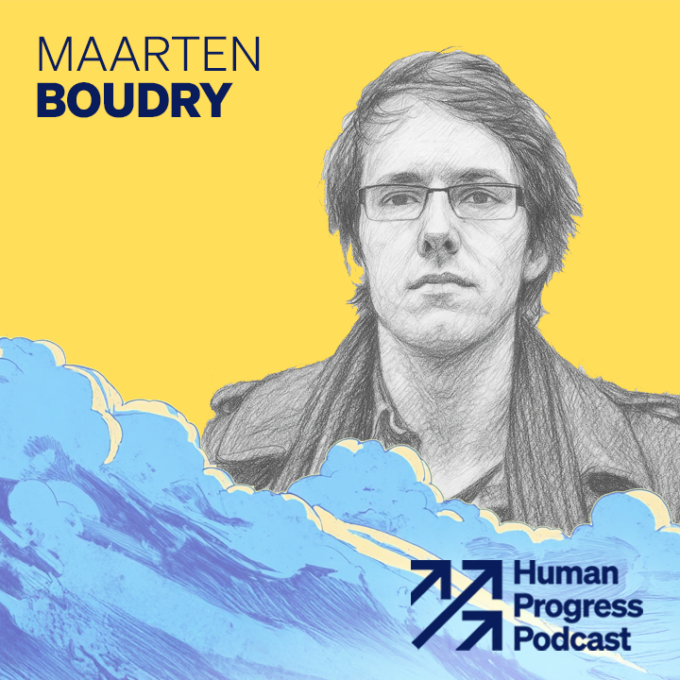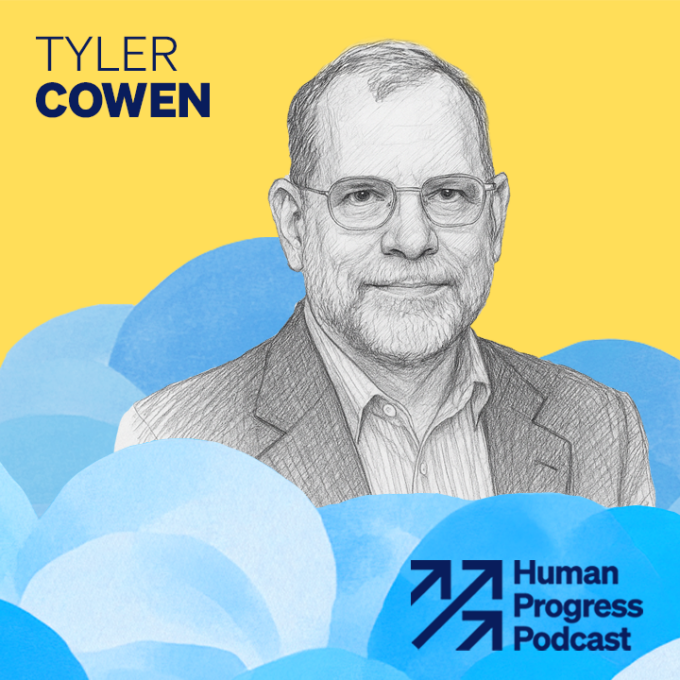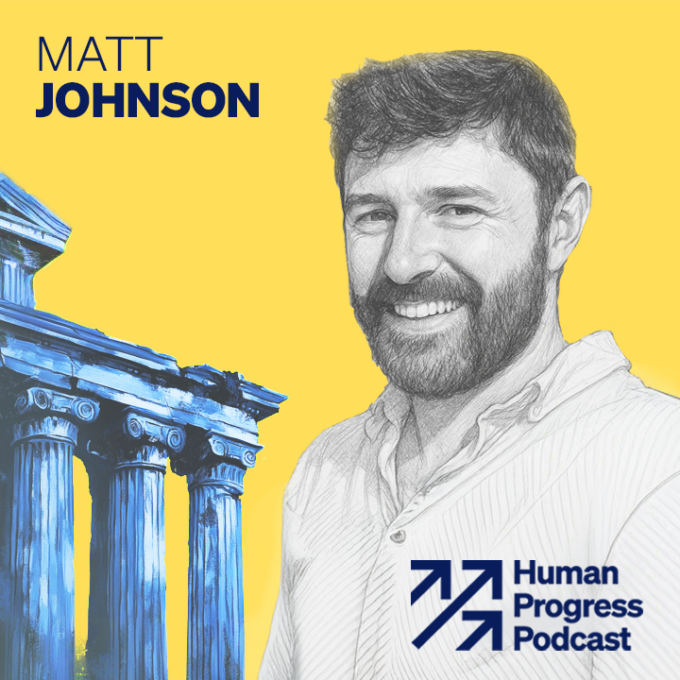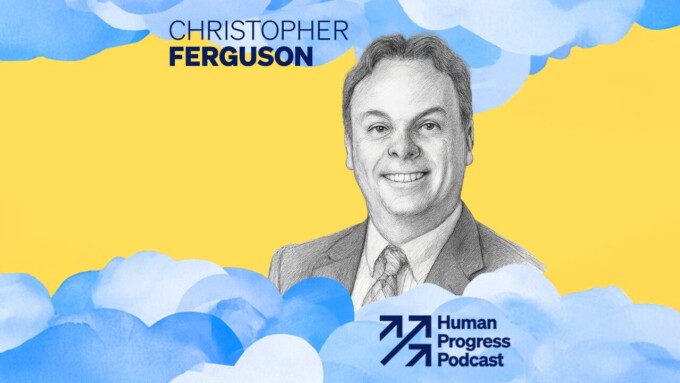
Trends
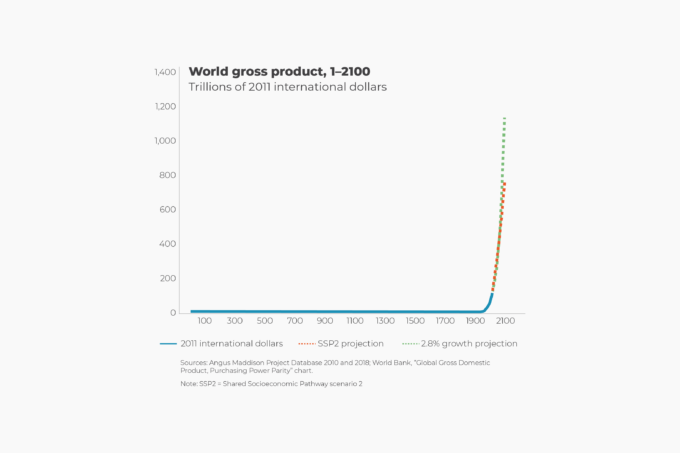
The Great Enrichment
The world is now richer than ever. In 200 years, the economy has grown more than a hundred fold.
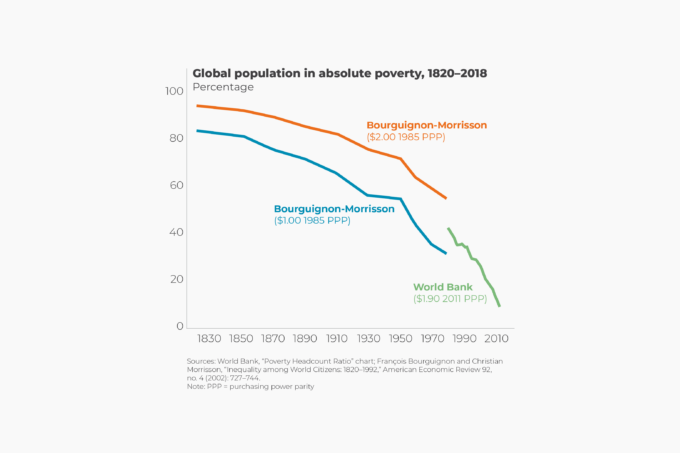
The End of Poverty
Only 200 years ago, more than 80% of the world lived in extreme poverty. Today, it is under 9%.
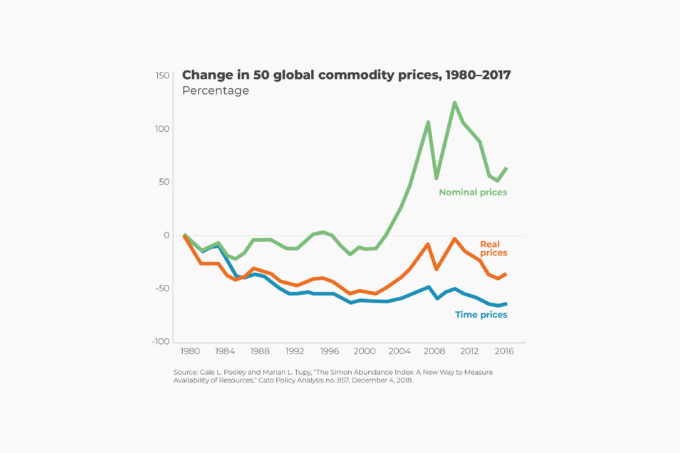
Are We Running Out of Resources?
Contrary to pessimistic predictions, resources tend to become more abundant and cheaper over time.
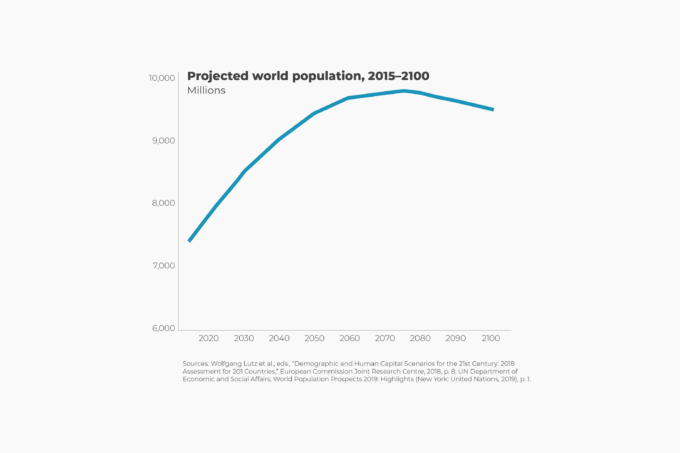
Peak Population
As education levels increase, people tend to choose to have fewer children. As a result, population growth will peak sooner than previously expected.
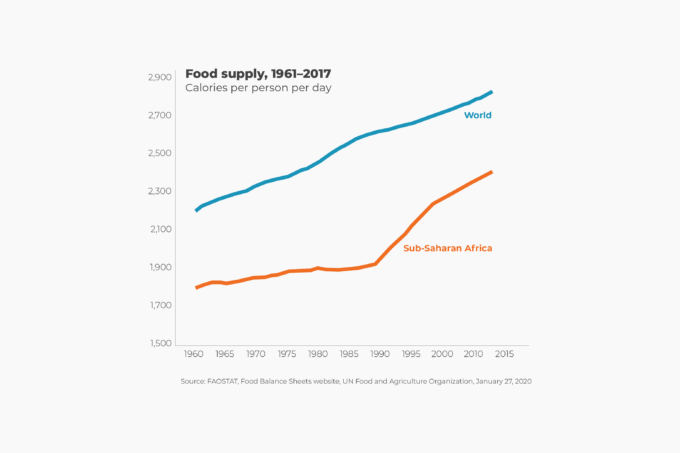
The End of Famine
Improvements in productivity, yields, and availability of crops have historically increased the world’s food supply.
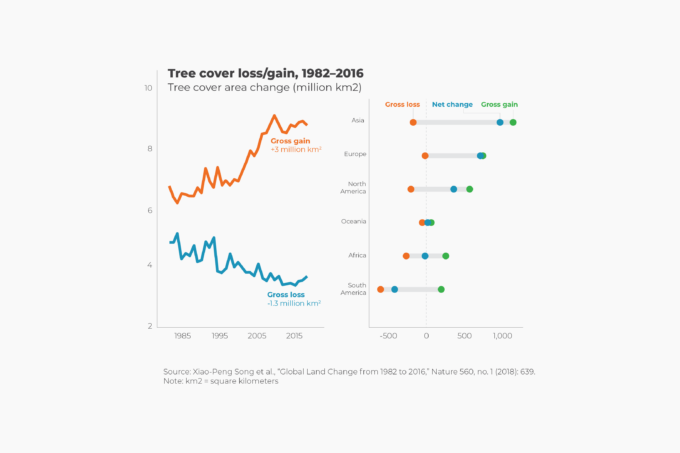
More Land for Nature
As people turn to urban life, woodlands are expanding and spaces being recovered for other species to rebound and thrive.
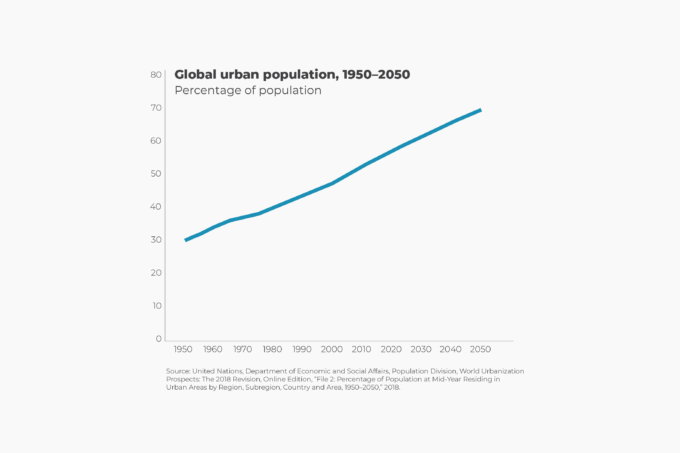
Planet City
The urbanization of the world’s population translates into more wealth, innovation and environmentally-conscious lives.
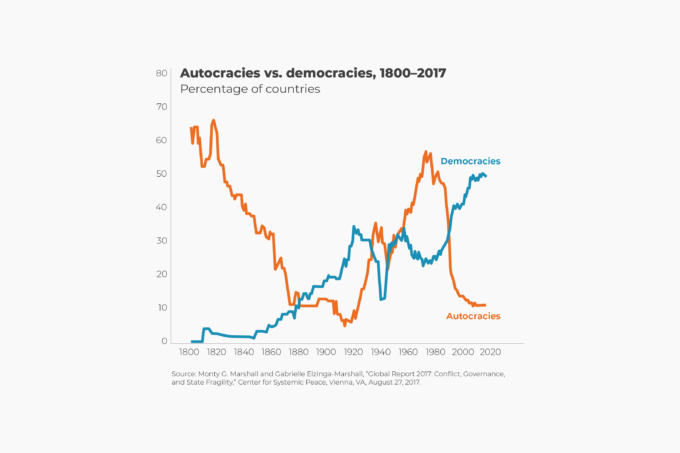
Democracy on the March
After the demise of modern autocracies in the 20th century, democracy has become the most popular form of government.
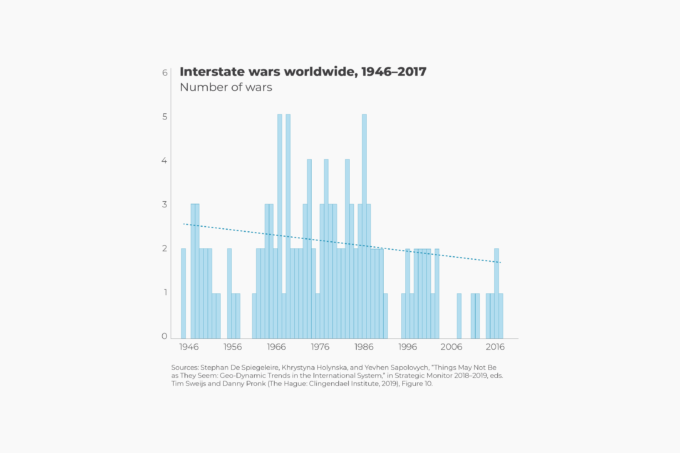
The Long Peace
Wars have become increasingly rarer as countries tend to be more democratic, wealthier and economically intertwined.
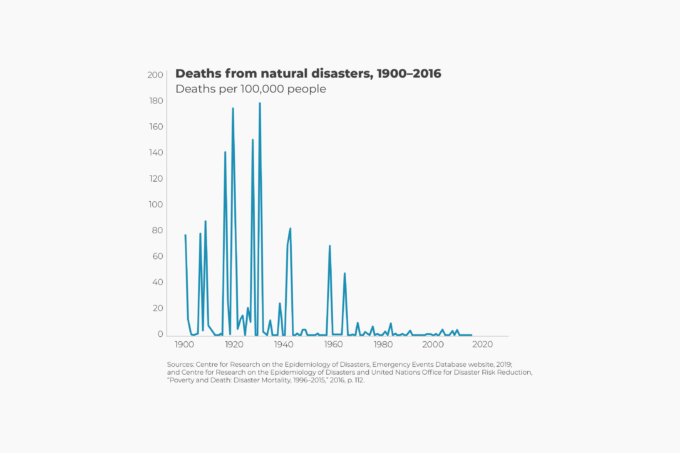
A Safer World
The probability of surviving a natural disaster has dramatically increased, as countries become wealthier and technologies more available.
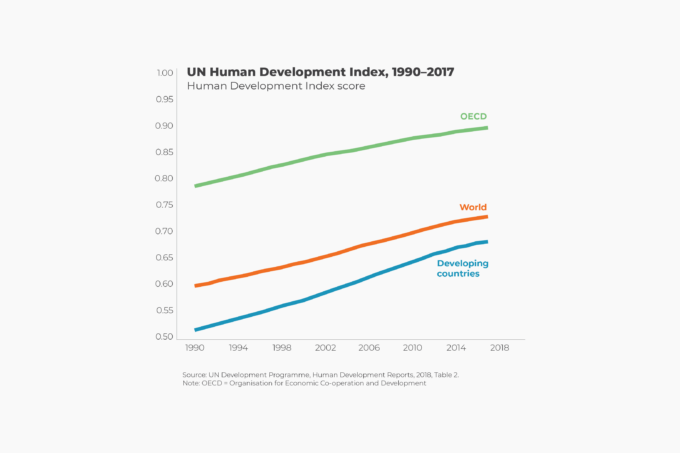
Life Options Are Expanding
The HDI shows how life expectancy, education and income per capita has improved around the world in the last few decades.
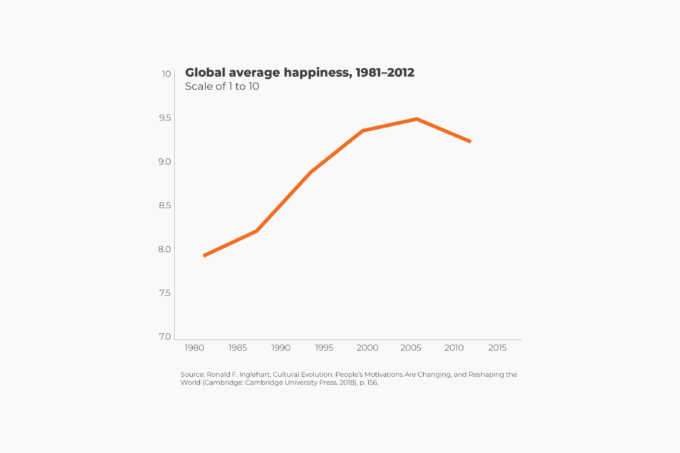
Global Happiness Is Rising
Self-reported happiness, related to subjective well being, has increased as countries become freer and richer.
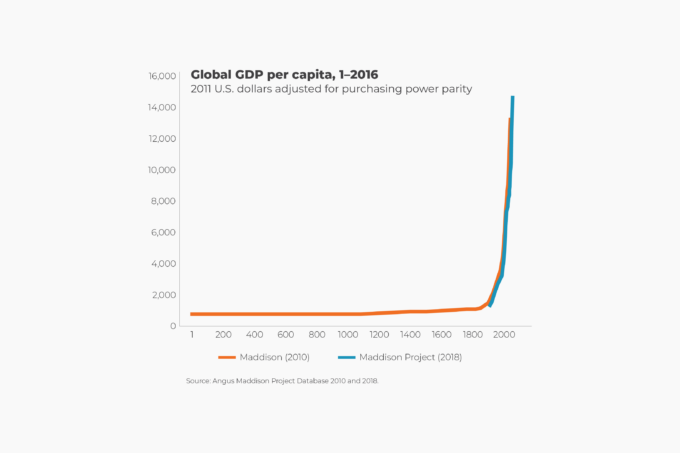
Global Income Is Rising
Since the Industrial Revolution, humanity made over twice as much progress in 100 years as it did in the previous 1,800, raising the global GDP per capita at an astonishing pace.
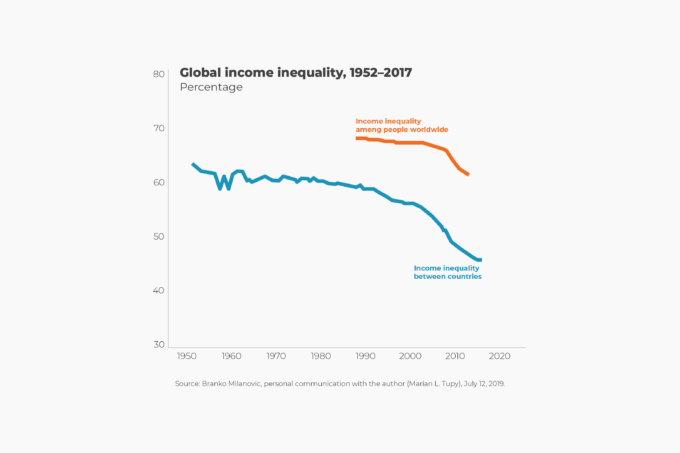
Global Income Inequality Is Falling
As non-Western countries grow their economies faster, global income inequality has started to steadily decline since the 1950s.
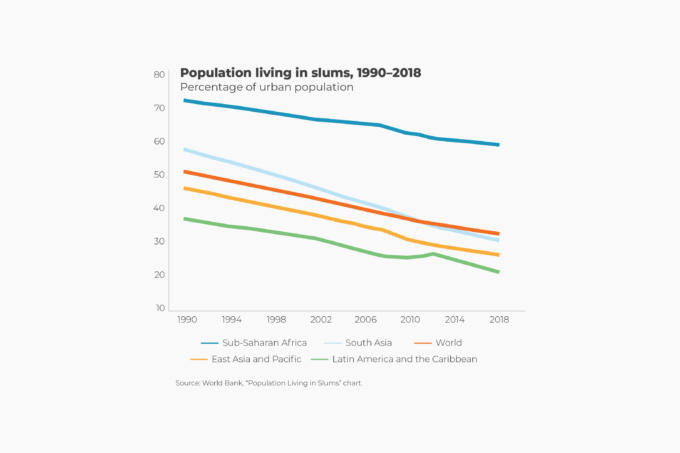
The Evolution of Slums
Although the number of people living in slums still increases, the ultimate process of urbanization will translate into better living standards.
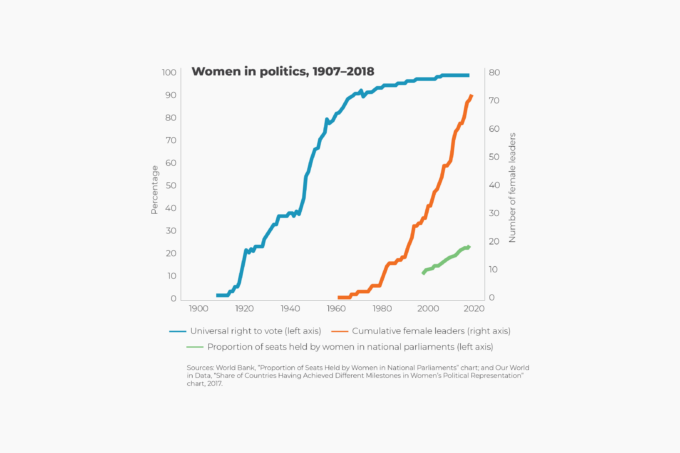
Empowering Women
Influenced by Enlightenment ideas, gender equality has dramatically increased in the last century.
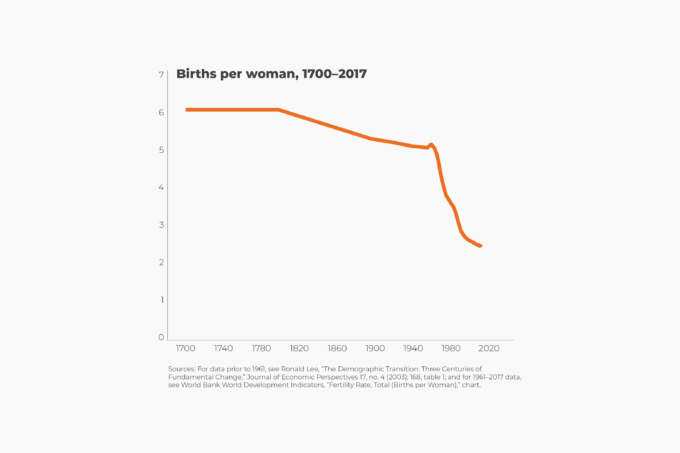
Choosing Smaller Families
As women’s life expectancy increases, as well as their participation in the workforce, they tend to choose to have fewer children.
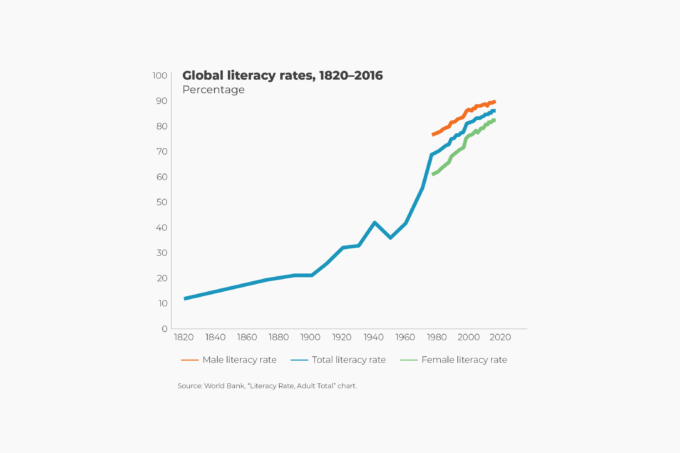
Achieving Universal Literacy
As the ability to read and write becomes more common, poverty rates decrease and equality improves.
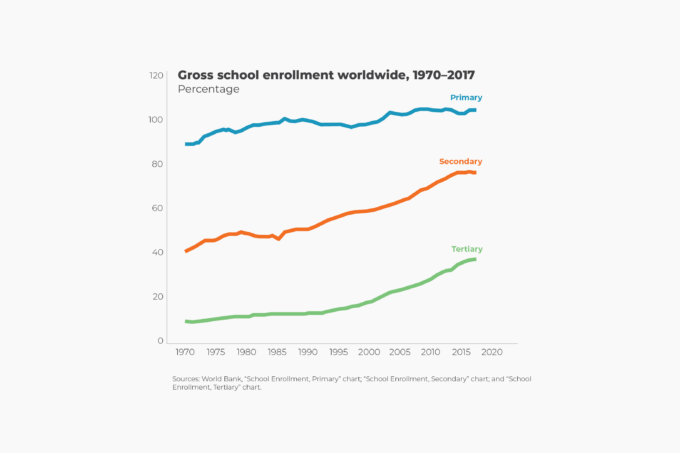
More Kids in School
The increase in access to education for children translates into higher salaries, and even more educational opportunities for their future kids.
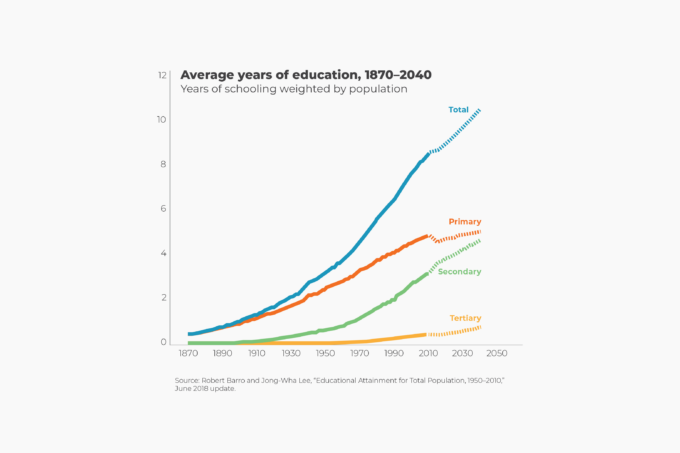
More Years in School
The rise in the number of average years of education is closely correlated to the progress humanity has made regarding economic growth.
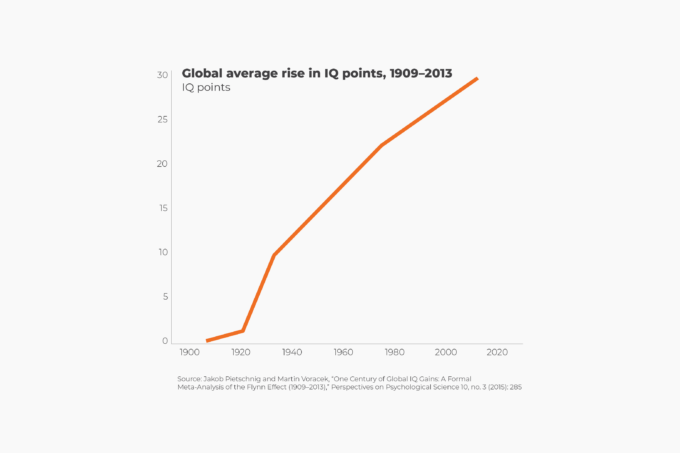
IQ Scores Rising Massively
In the past century, IQ test scores have increased by 30 points as nutrition, schooling and overall health also improves.
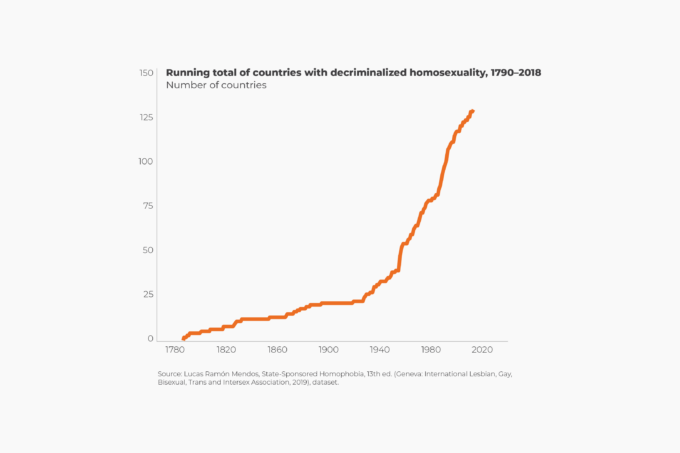
Decriminalizing LGBTQ
Out of the 193 members of the UN in 2019, more than 60% of the countries had decriminalized same-sex relations.
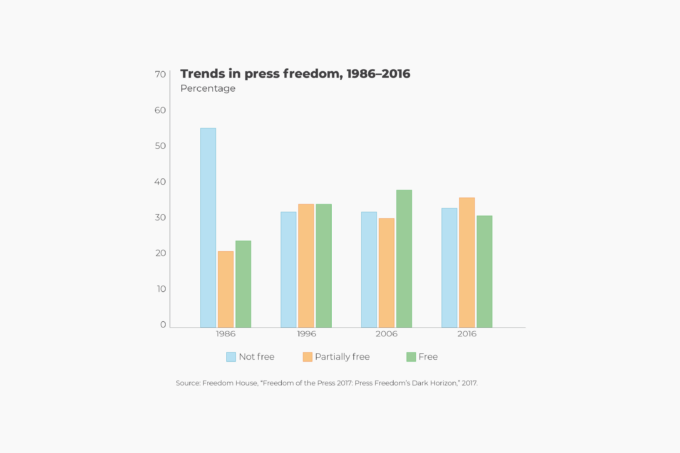
Global Free Press Progress, With Setbacks
Although there have been some setbacks, freedom of the press continues to advance. Without freedom of speech, no other rights can be defended.
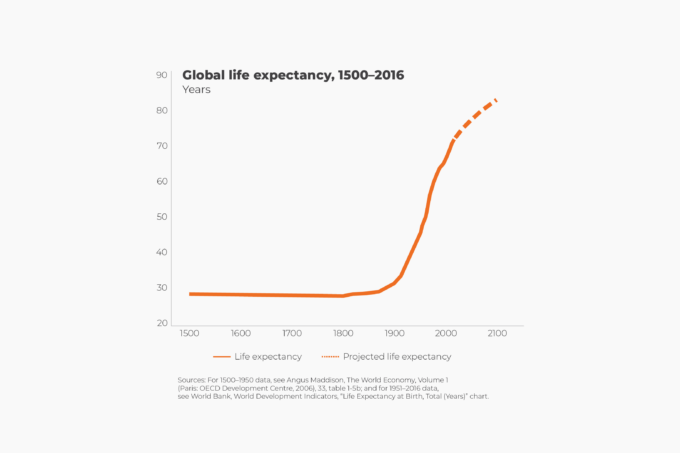
Life Expectancy is Rising
For most of human history, people only lived for about 30 years. In the last two centuries, the global life expectancy has risen to 72 years.
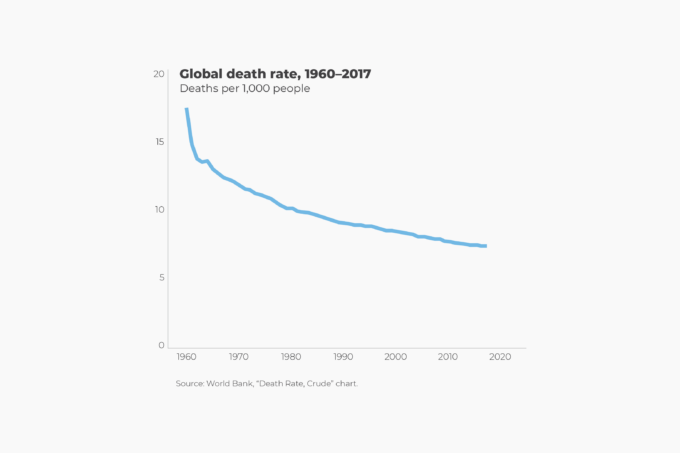
Global Death Rate Is Falling
Due to lower infectious diseases, wars, and food insecurity, the crude annual death rate is also in retreat.
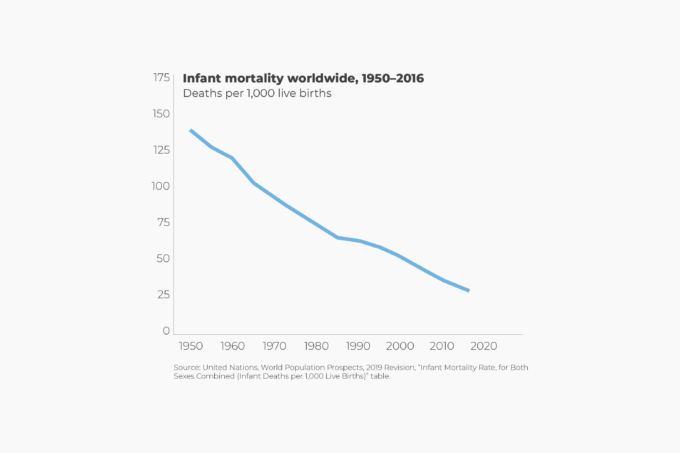
Vastly Fewer Children Die Young
Infant mortality rates have fallen considerably, largely thanks to modern medicine and early vaccine access.
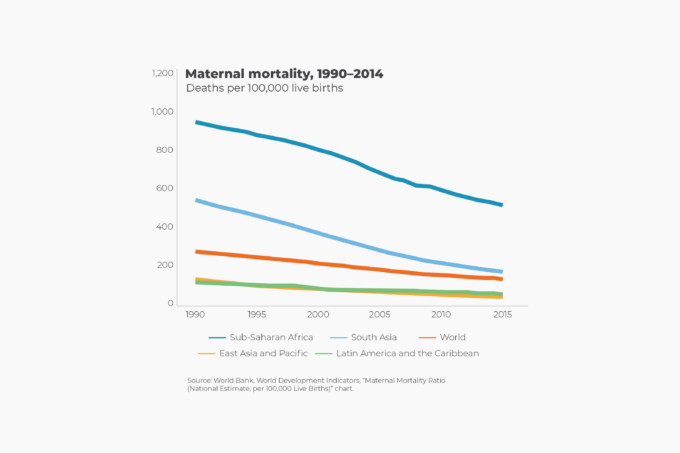
Mothers Are Living Longer
Hygienic practices in the medical environment resulted in the fall of maternal mortality rates, from 385 in 1990 to 216 per 100,000 in 2016.
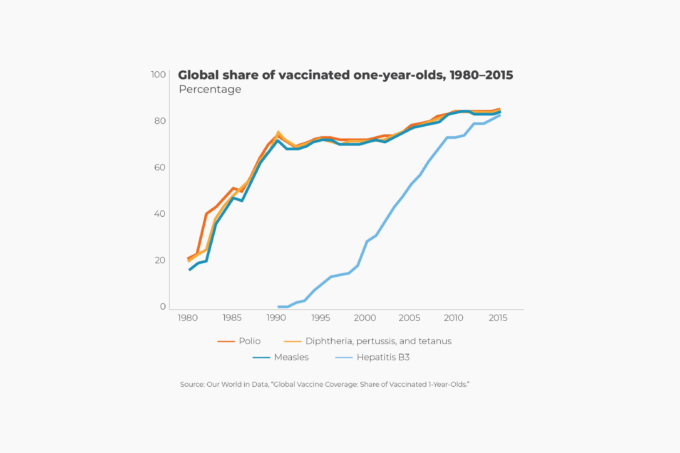
Vaccines Are Saving Lives
The growing access to early vaccination has prevented millions of deaths and even more lives have been protected from illness.
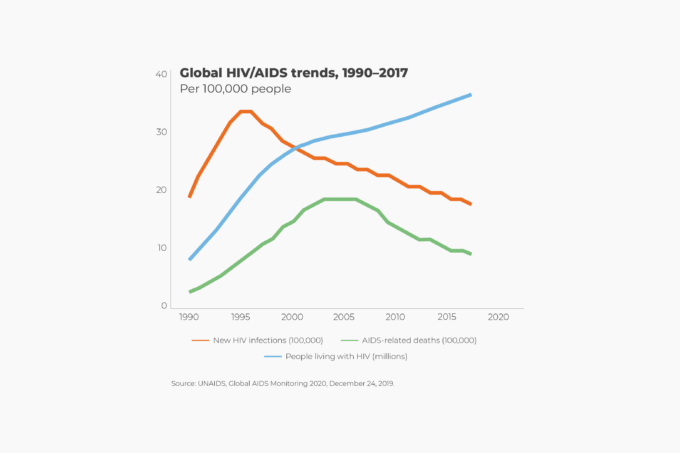
Overcoming HIV/AIDS
In the last three decades, HIV infections have become rarer, while the survival rate of the disease has considerably gone up.
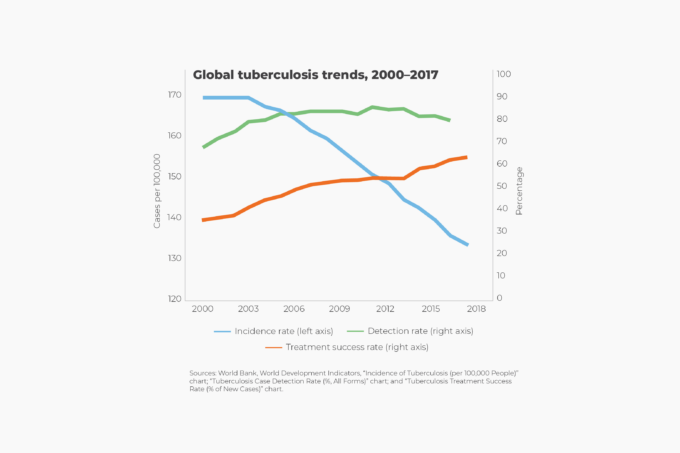
Trouncing Tuberculosis
In the last two decades, the incidence rate of tuberculosis has considerably decreased, while the detection and treatment success rates have gone up.
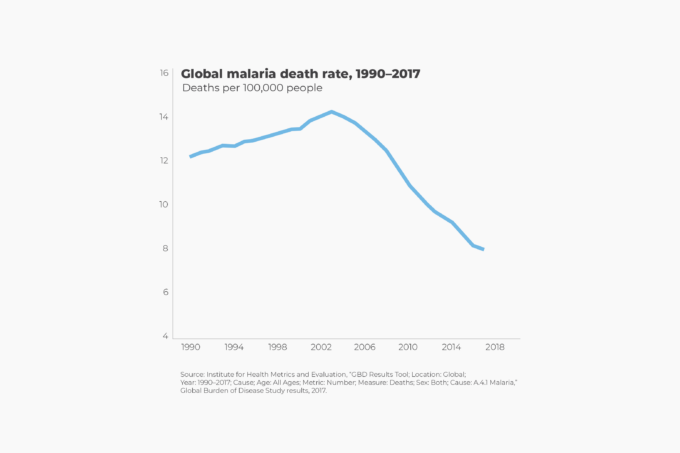
Malaria Retreats
Accelerated by insecticide and medicine advancements, progress in the fight against malaria is being made.
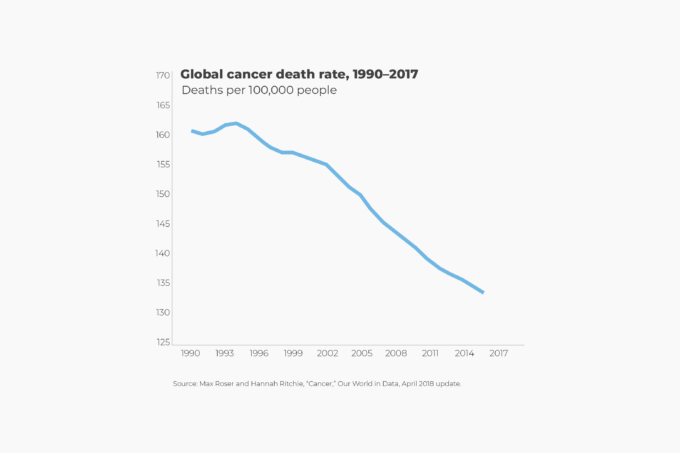
Winning the War on Cancer
Over the last few decades, the global cancer death rate has decreased due to faster detection methods and constant drug improvements.
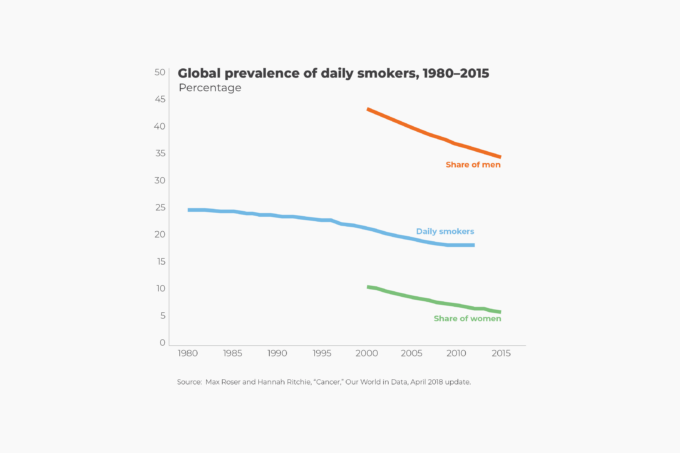
Tobacco’s Last Stand
Although the number of smokers has continued to rise as the population grows, the prevalence of daily smokers has fallen in the last four decades.
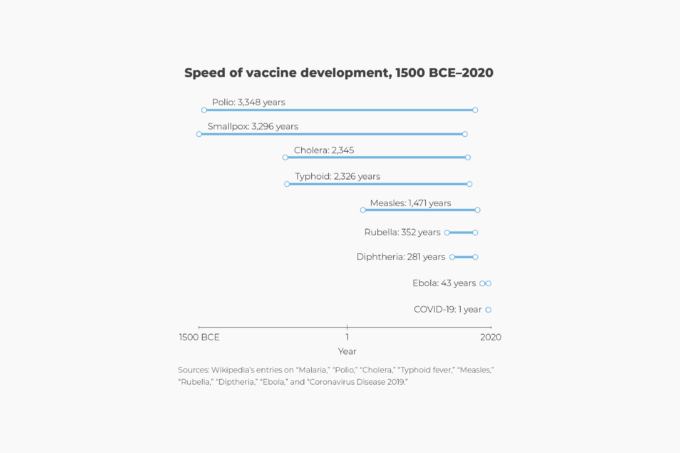
Accelerating Vaccine Discoveries
The acceleration of vaccine developments has enabled the eradication of numerous deadly diseases.
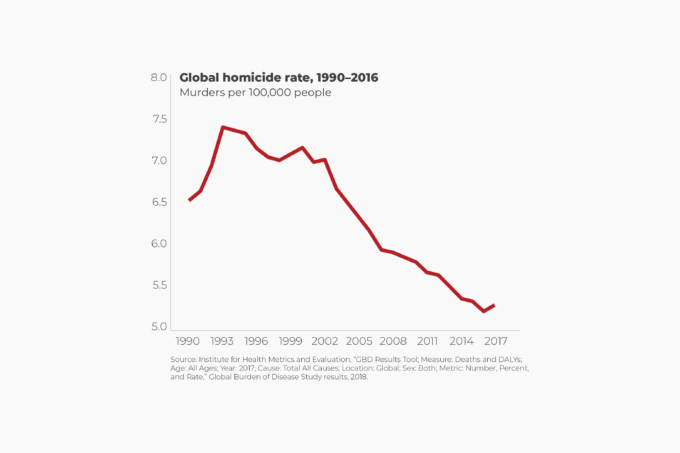
Global Murder Rate Is Falling
The global homicide rate has progressively declined over the last three decades, as fairer judicial systems and better policing have spread around the world.
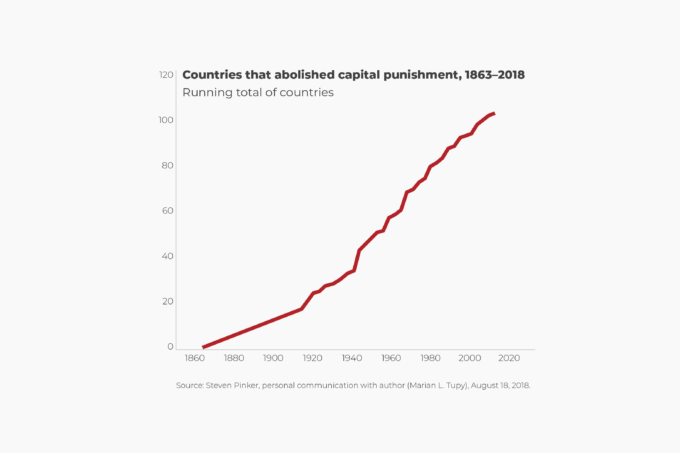
Capital Punishment Plummets
Gruesome punishments have become rarer over time. As of 2018, the majority of countries had abolished the death penalty in law or practice.
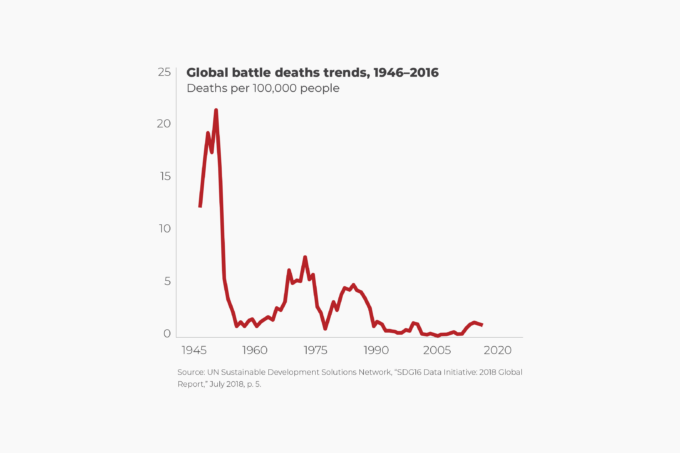
Battle Death Rate Is Declining
As wars have become rarer, battle death rates have also decreased considerably in the last decades.
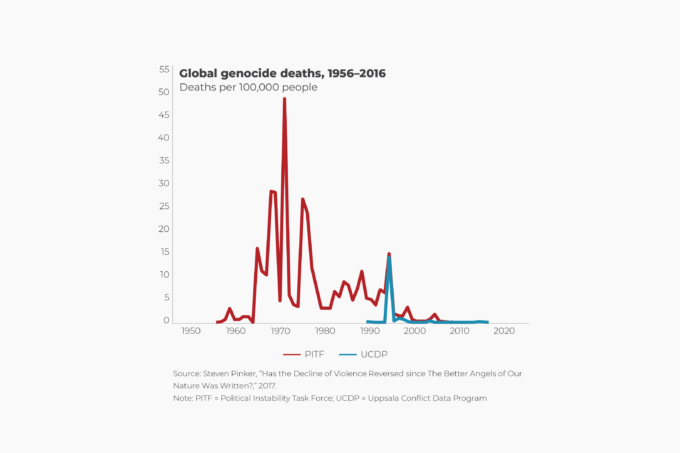
Genocides are Disappearing
As genocides tend to go hand in hand with war, they peak when conflicts occur. As war becomes less frequent, since 2000, the mass killings of civilians have become rarer still.
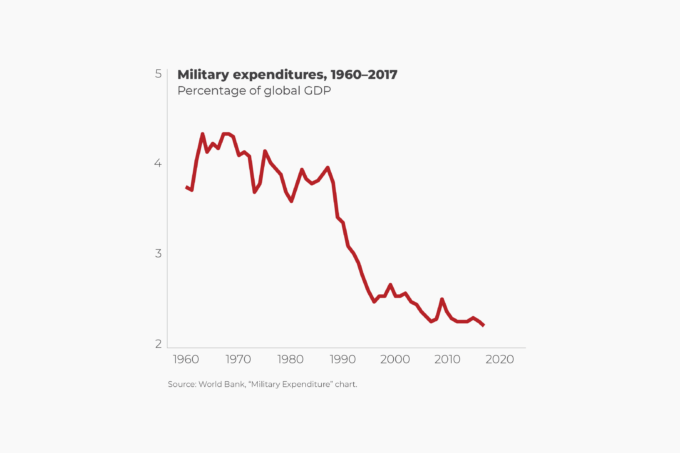
Military Spending Ratio Falling
Although military spending has risen in actual dollars, the expenditure as a percentage of the growing global GDP has considerably decreased.
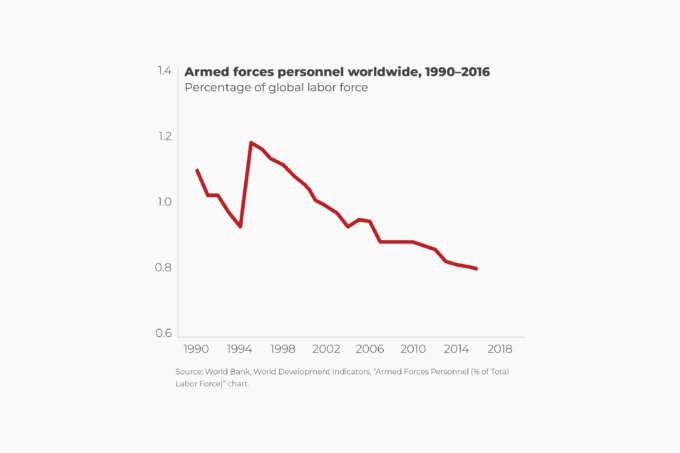
Armies Shrink as a Proportion of Population
During this unprecedented period of peace, the percentage of the labor force working for armed forces is lower than ever.
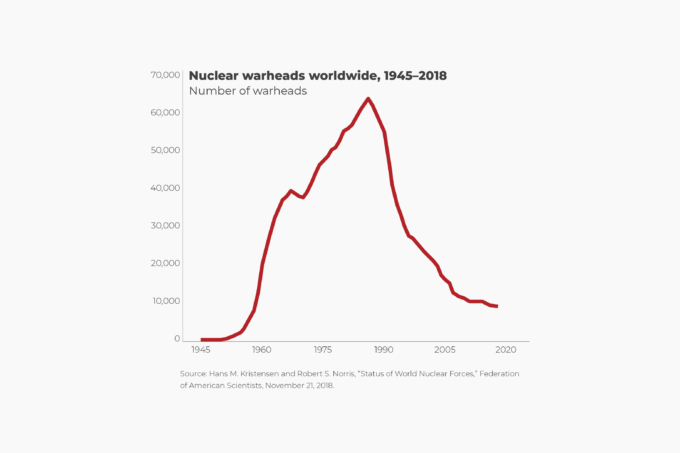
Nuclear Arsenals Dwindle
After reaching its peak during the Cold War, the number of nuclear warheads has consistently declined.
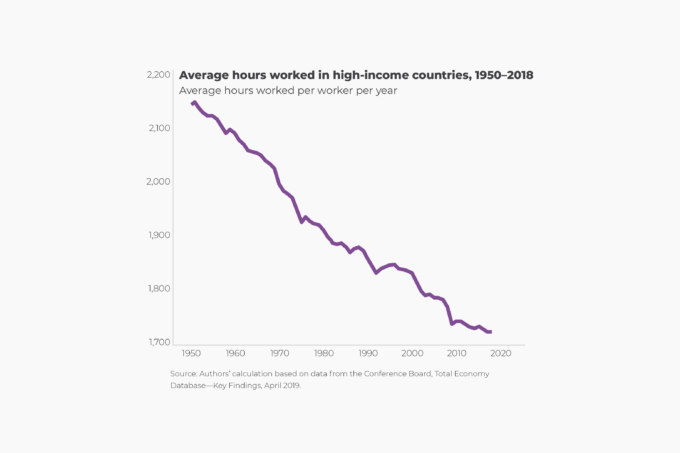
Working Less for More
As prosperity and wealth increases, the overall number of hours worked decreases.
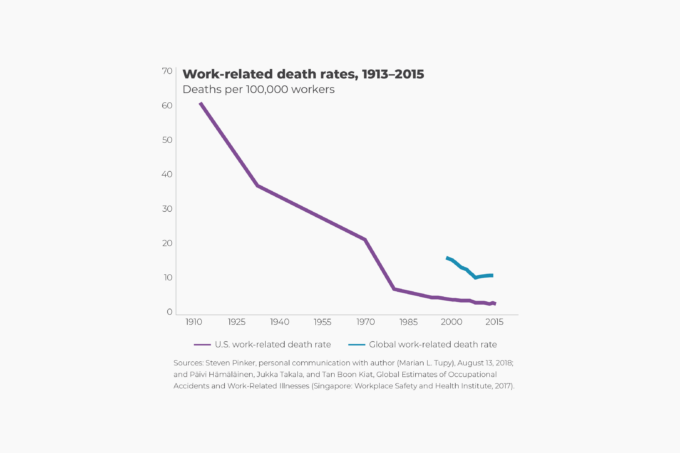
Work Grows Safer
Today’s working conditions are far better than those of our ancestors, making work-related deaths rarer.
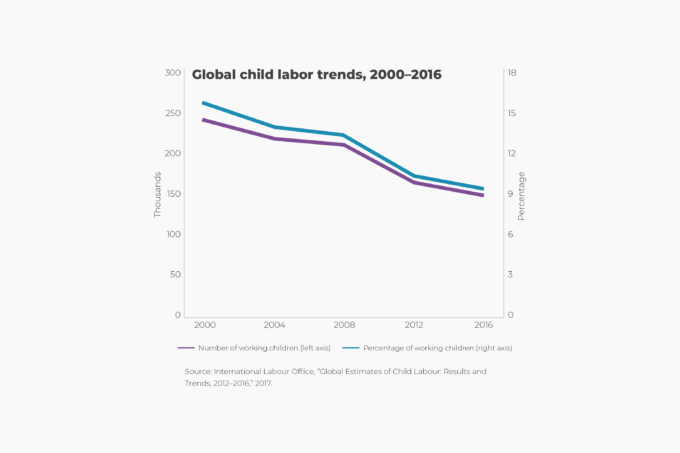
Children Labor Less
As the economy expanded, labor competition increased and wages grew, child labor became more uncommon.
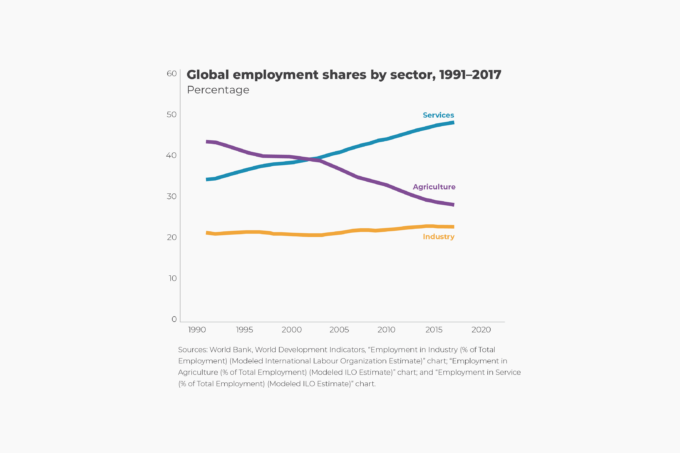
The Changing Nature of Work
Today, most people work in the services sector rather than in the industry or agricultural jobs.
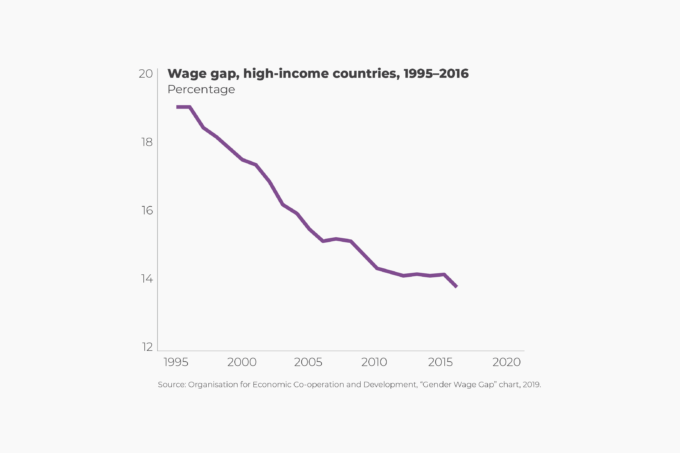
The Wage Gap Between Men and Women is Narrowing
Since women were able to secure themselves independent sources of income, the wage gap has been narrowing in high-income countries.
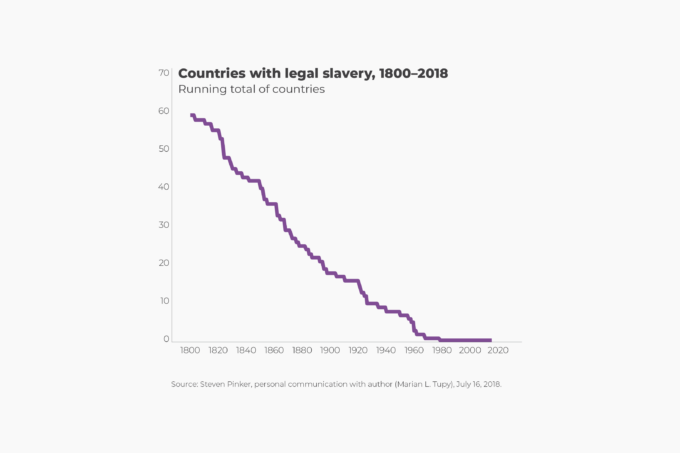
Universal Emancipation
Eliminating the ancient institution of chattel slavery has been one of the most important moral achievements of humanity.
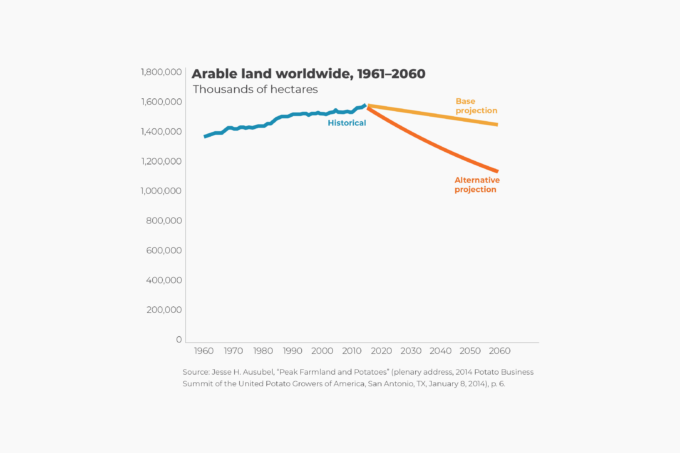
Peak Farmland
As agricultural productivity improves, the amount of land needed for food production will decrease.
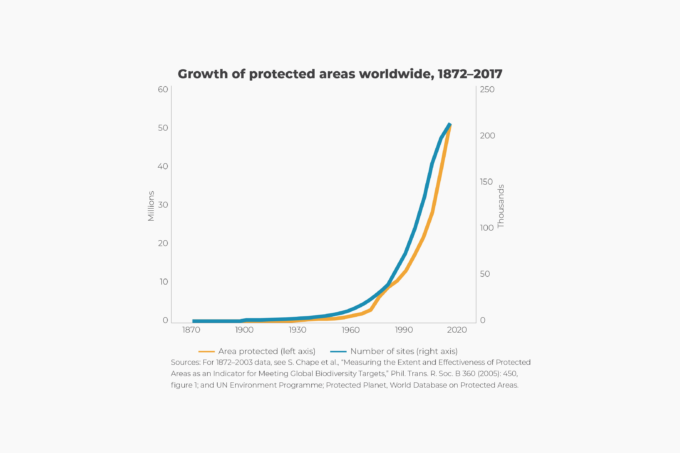
Conserving More Land and Sea
Humanity is on the way towards setting aside 59 million square kilometers of land and sea for nature.
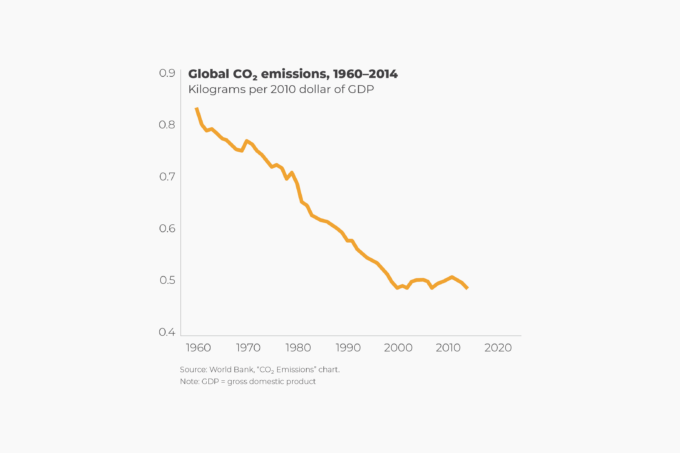
Decarbonizing the Economy
Since the 1960s, the amount of global CO2 emissions per dollar has steadily declined.
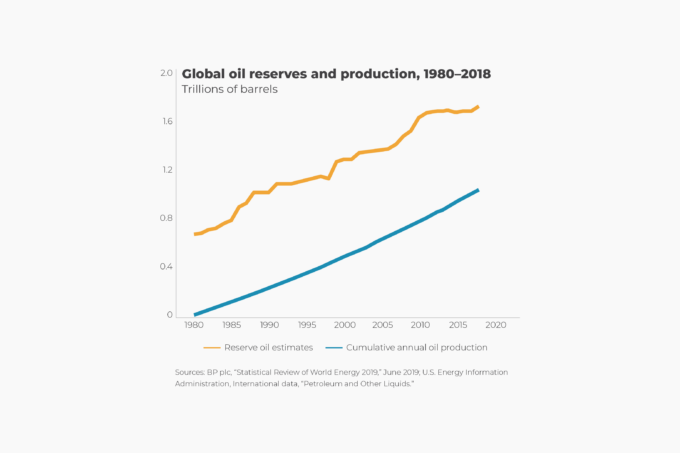
No Peak Oil
Despite pessimistic concerns, global oil reserves and production have been growing over the past four decades.
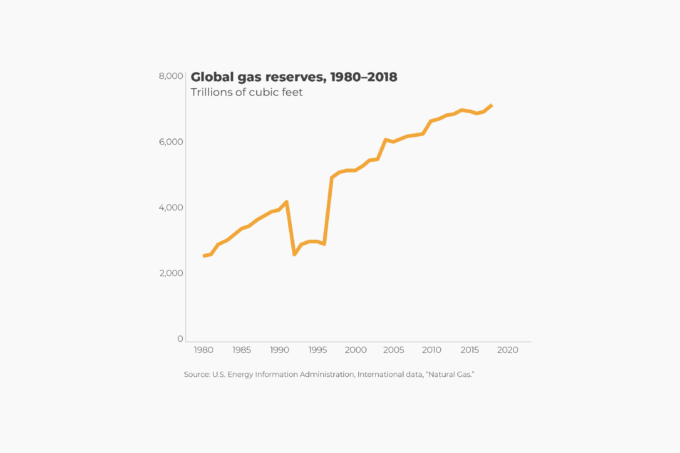
Rising Natural Gas Reserves
Further exploration and development of production technologies have boosted global proven reserves of natural gas considerably.
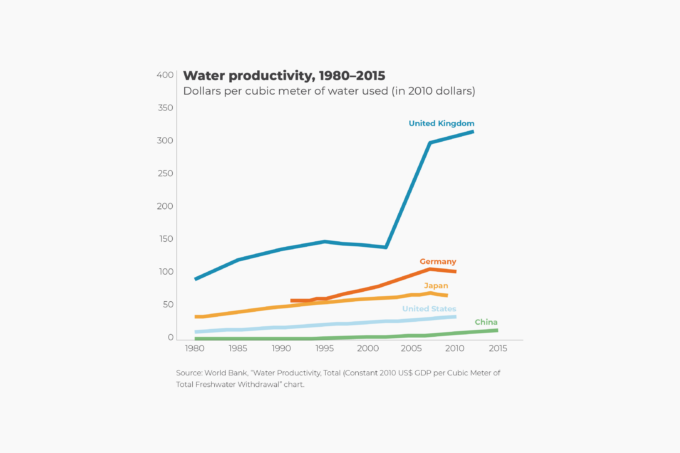
Using Water More Efficiently
Greater efficiencies in agriculture have helped limit water waste and runoff, thus lowering the costs of water production.
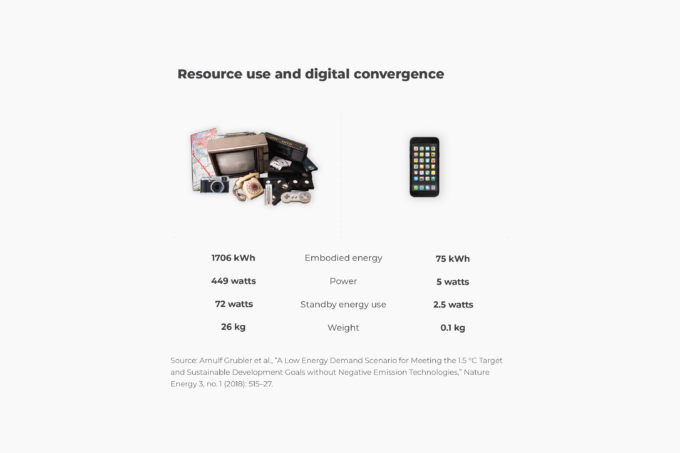
Producing More With Less
Through the process of “dematerialization”, less material and energy is needed per unit of gross domestic product, fostering competition and lower prices.
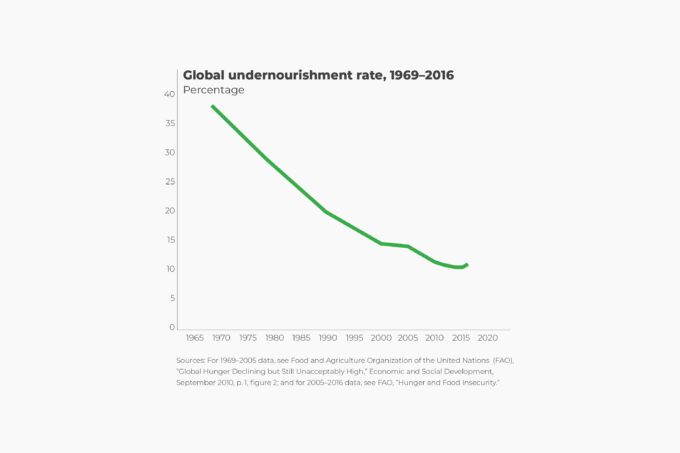
Hunger Retreats
This century’s food insecurity is almost exclusively related to war and political violence. Outside of war zones, famines have disappeared.
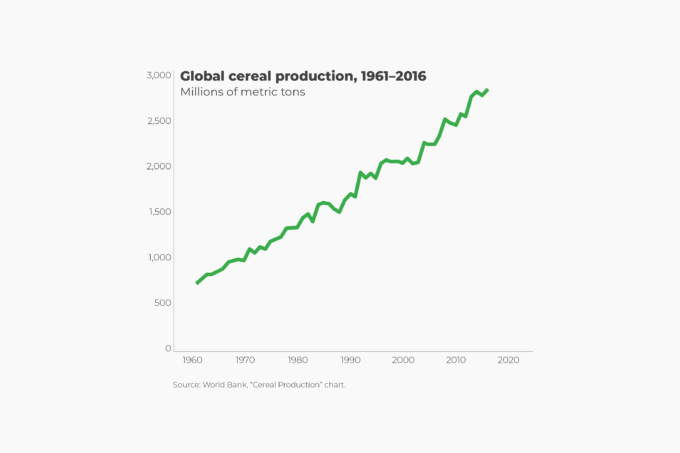
Grain Cornucopia
The global cereal production, which accounts for more than half of humanity’s daily caloric intake, has vastly increased since the 1960s.
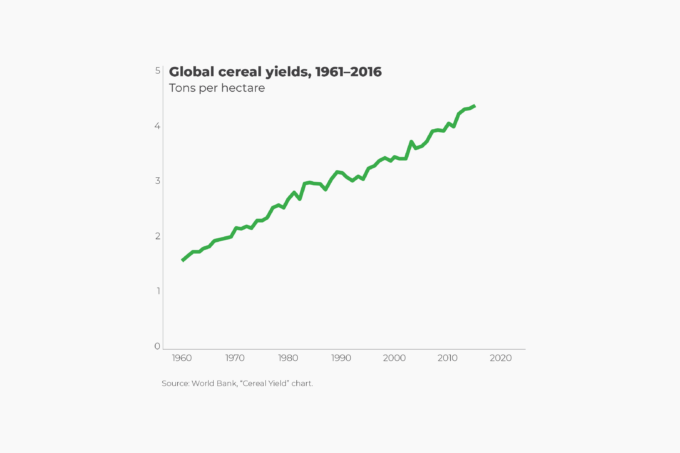
Yields Increasing
Since the Green Revolution in the 1960s, global cereal yields have continued to increase, nourishing the growing population.
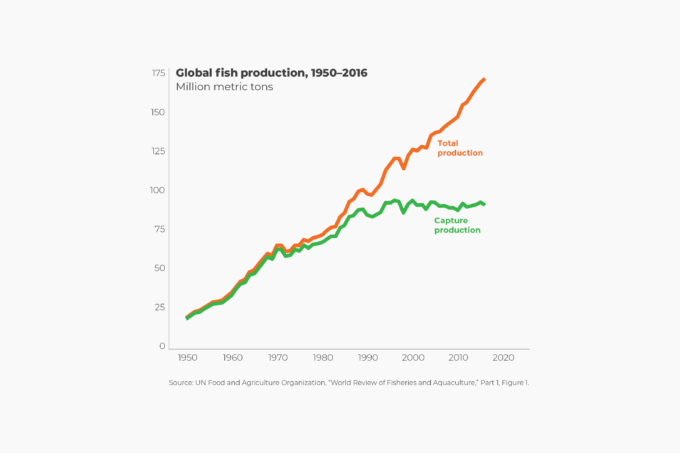
Farming and Eating More Fish
From a sustainability point of view, the growth of aquaculture in contrast to wild-caught fish is a largely welcome development.
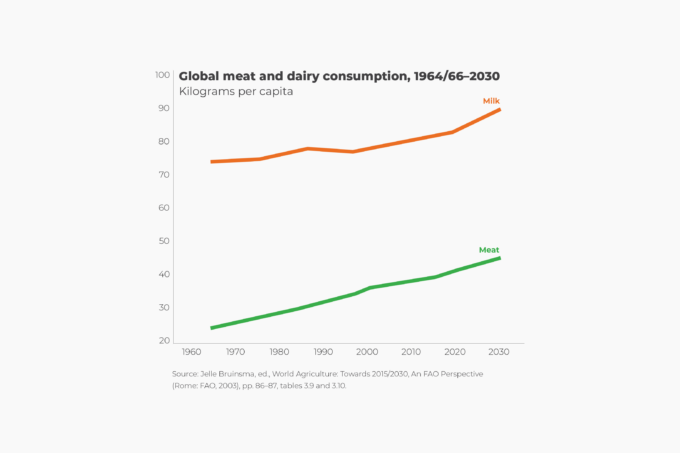
Protein Boom
Meat and dairy consumption has increased since the 1960s, adding valuable nutrients to a previously starchy plant-dominated diet.
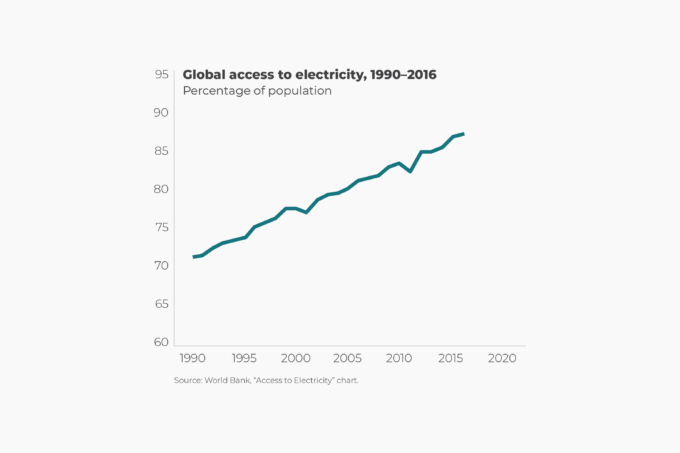
Access to Electricity
Today, more than 87% of the world’s population has access to electricity, with most of the underserved population living in Sub-Saharan Africa.
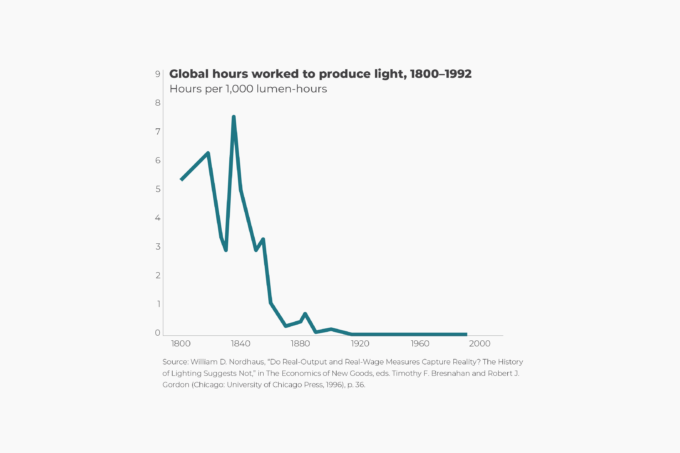
Lighting Costs Near Nothing Now
From wood, candles and gas lamps, to electric light bulbs, the world has reduced the cost of light production by almost 100%.
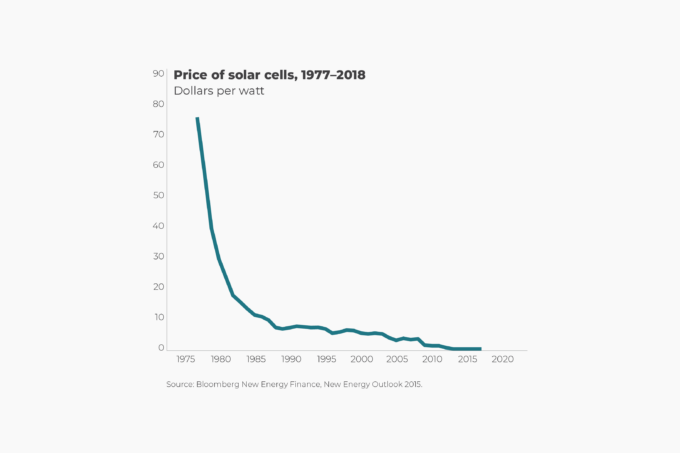
Solar Power Ever Cheaper
Since 1977, the price of a solar cell has fallen from $76 to $0.24 per watt in 2018.
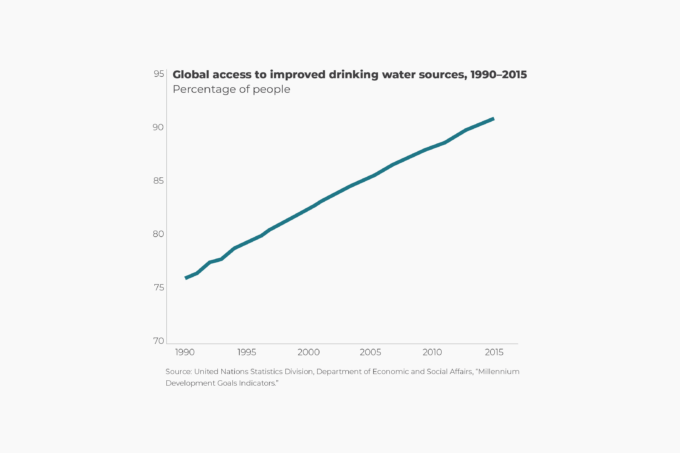
Clean Drinking Water
Since contaminated water spreads infectious diseases, the progress made in the accessibility to safe water sources has been life-saving.
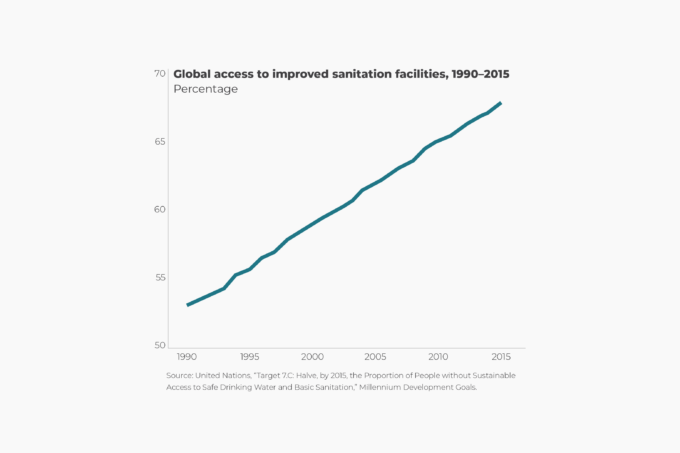
Improving Sanitation
The improved access to sanitation facilities has been a key improvement for the betterment of human health.
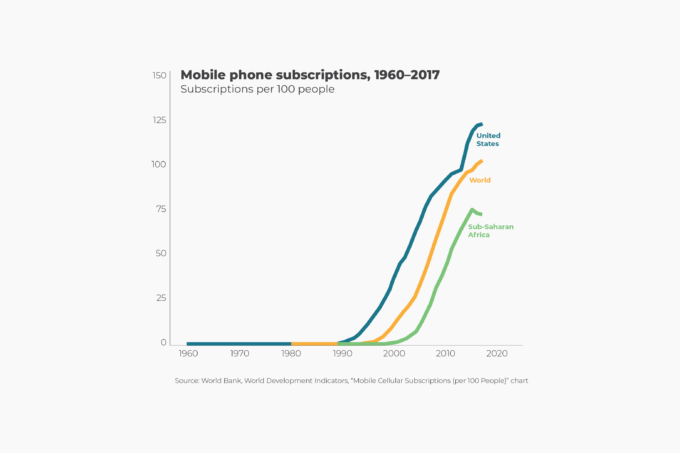
Mobile Phone Revolution
Mobile phones not only keep us connected, but also give censored societies the possibility to access information and to share it.
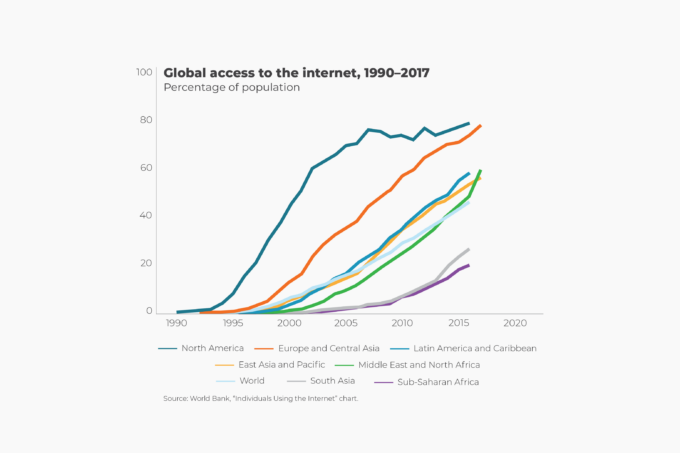
Internet Explosion
Although internet accessibility has steadily risen, new satellite technologies will continue to add to the progress connecting people around the world.
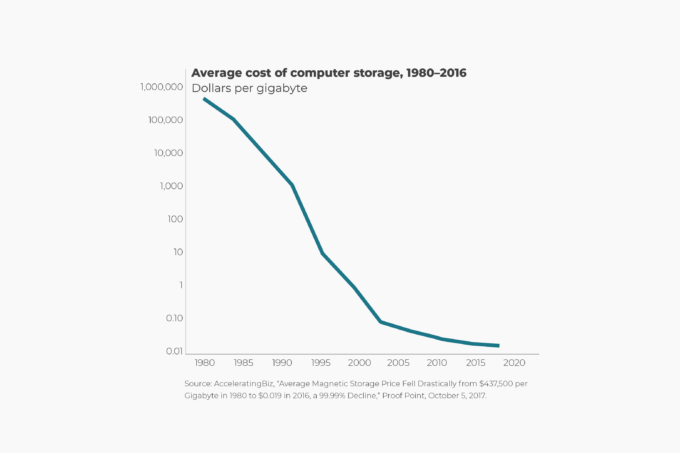
Vastly Cheaper Computation
Computational power and storage continues to rise, while prices fall steadily.
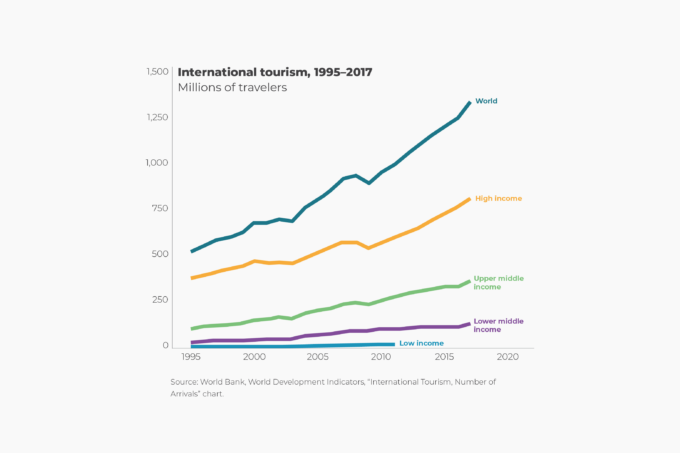
Global Tourism Rises (Pre-Pandemic)
Due to cost and convenience travel improvements, the number of tourists traveling internationally has increased.
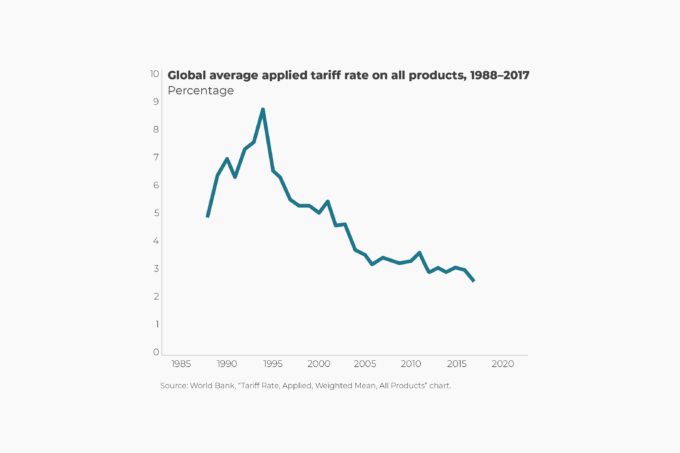
Tariffs are Falling
The world has made a lot of progress stepping away from protectionist measures, like the implementation of high tariffs on products.
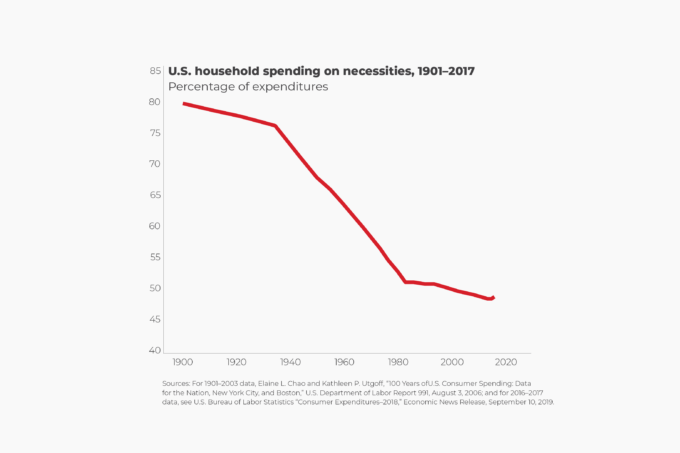
Share of Spending on Household Basics Declines
As American households grew wealthier, they spent a smaller proportion of their incomes on basic necessities.
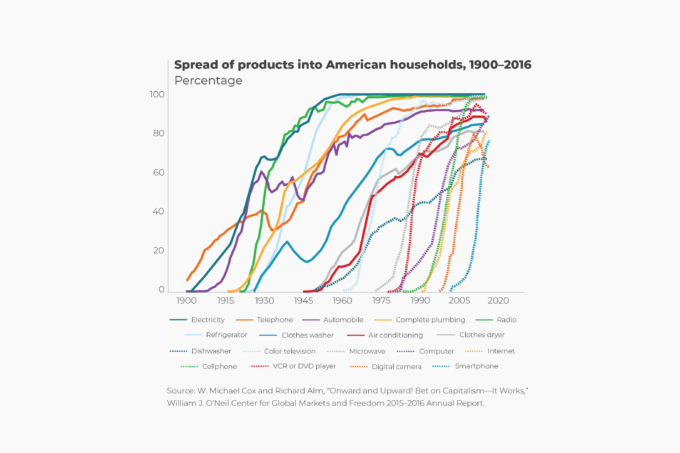
Cost and Adoption of New Technologies
As technologies progress and become cheaper, the material well-being of American families continues to rise.
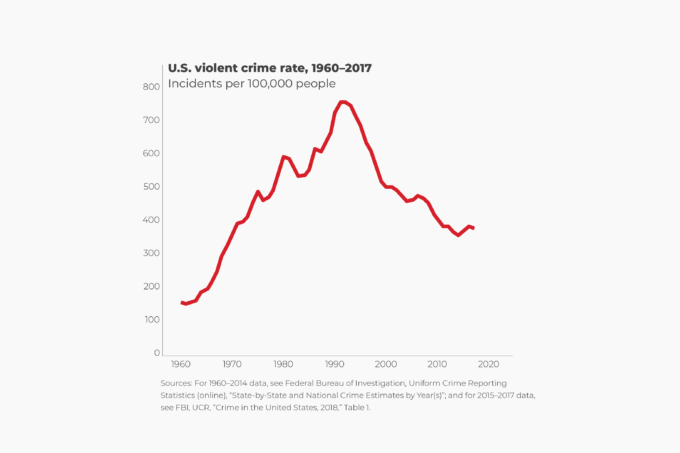
Violent Crime Rates Are Falling Steeply
Contrary to what most Americans believe, violent crime rates have been falling steeply for the past two decades.
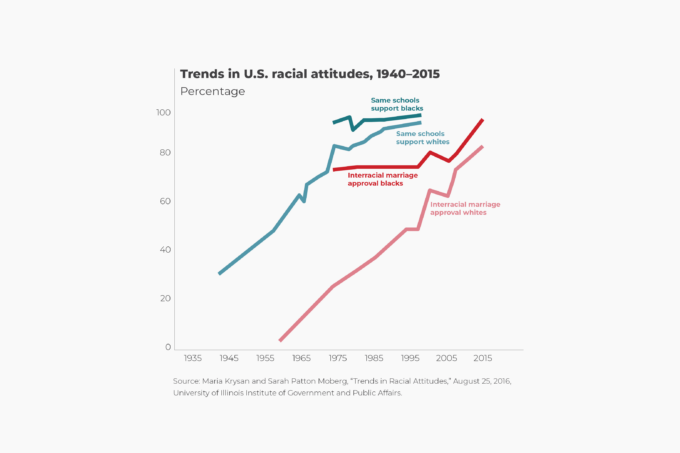
Declining Racist Attitudes
Substantial progress has been made regarding racial attitudes and civil rights, although work remains to be done.
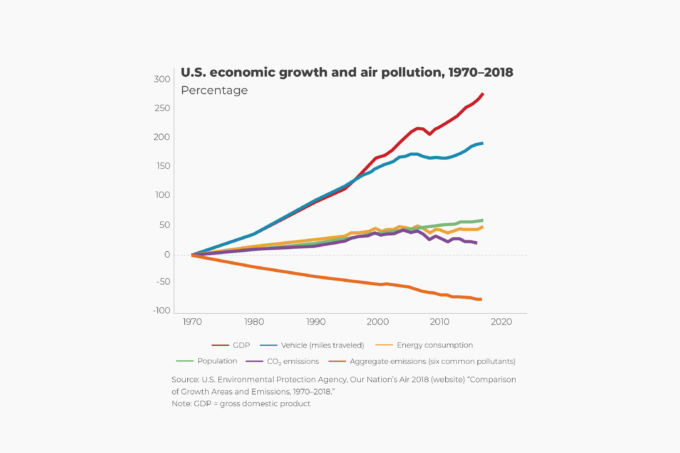
Air Pollution Is Falling Steeply
As the economy continues to grow, air pollution has been falling for decades, even before the creation of the EPA.
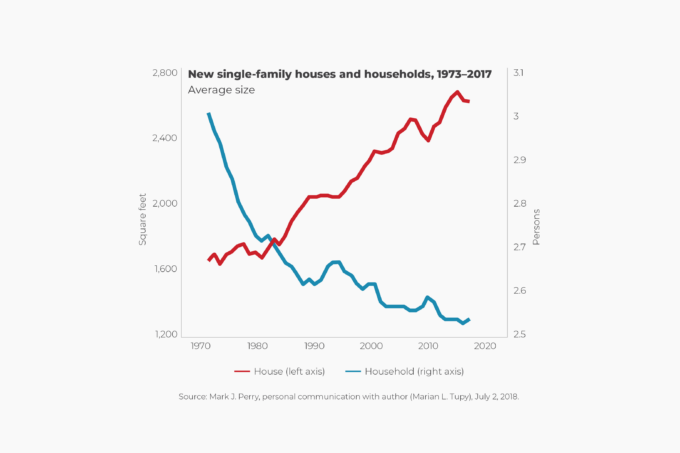
Bigger and Better Housing
Between 1973 and 2017, the share of new houses built with four or more bedrooms rose from 23% to 46%.
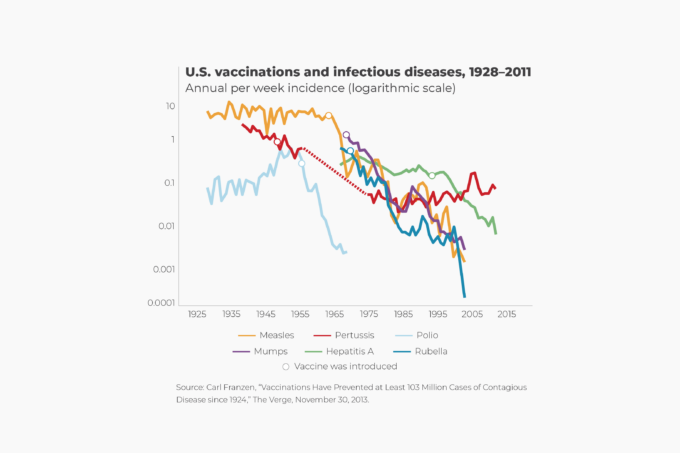
Rising Vaccination and Plunging Infectious Disease
As new vaccines are discovered and made widely available, the incidence of infectious diseases declines considerably fast.
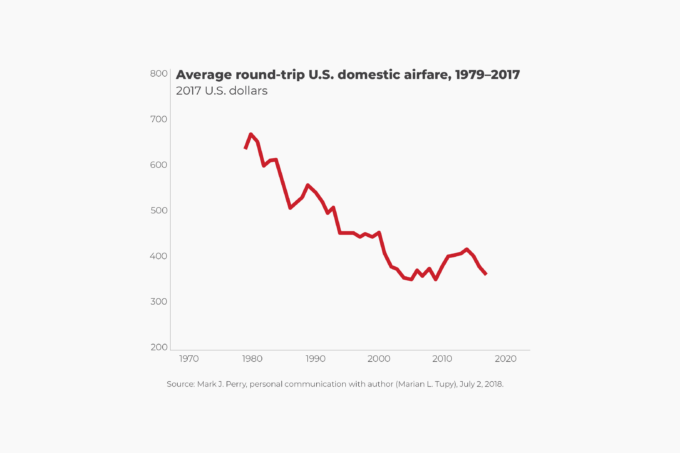
Air Travel is Getting Cheaper
Initially, flying was effectively restricted to the rich. Over time, airfares have become considerably more accessible.
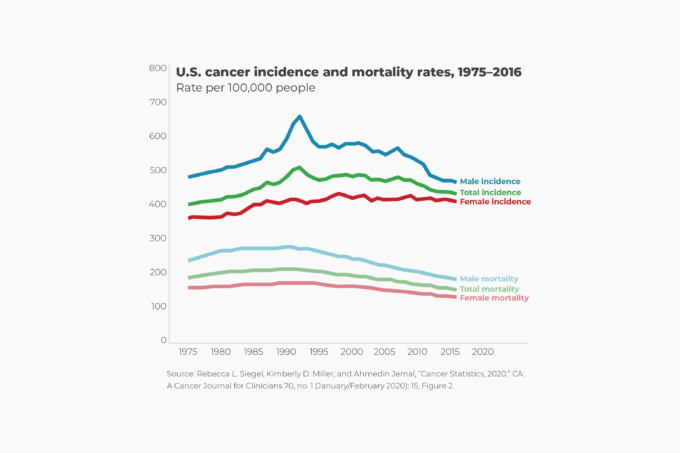
Cancer Incidence and Death Rates at 26-Year Low
Although there is still a lot of progress to be made, earlier detection and screening methods have lowered cancer incidence and mortality in the U.S.





